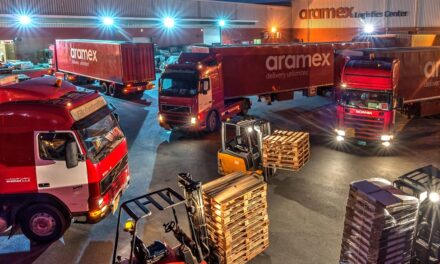
France – A market dominated by Paris
The market for express delivery services in France has recorded significant growth since 1995, according to the report Major European Markets for Express Delivery Services released by UK-based market researchers MSI.
A lower increase of 5 percent of the market in 1995 resulted from a slowdown in most sectors of the French economy, the
report states, but it also forecasts that the French market for express delivery services is expected to grow by some 17 percent in real-value terms between 2000 and 2004.
This growth is expected to be stronger than that recorded between 1995 and 1 999, reflecting the expected economic recovery in France and the main west European economies, as well as the Far East.
There is one key factor about France:
while the figures may vary slightly depending on who you talk to it is clear that Paris completely dominates the market.
Around 65 percent of all in-coming courier material is bound for Paris and its suburbs. The lie de France area (effectively Greater Paris) is among the richest in the EU with a GDP around 5 percent of the EU total.
With Paris the major focus, it might be expected that there would be a glut of courier companies vying for the resulting business. But this is not the case, according to a spokesman at Aramex. “London is much more concentrated than Paris,” he says. While he estimates London has 500 to 600 companies, Paris has “only a couple of major players”.
Aramex was established in Paris in 1986, and has been enjoying growth year by year, partly as a result of the lack of competition, but also due to the company being more specialised than some of the others.
The nature of the French market for express delivery services has changed sig
nificantly in recent years, according to survey compilers MSI. Express delivery companies have launched additional new products and value-added services and operators have tried to position themselves to differentiate their company from competitors by providing extra services mainly based on quality, including time guarantees and track and trace systems, rather than speed of delivery.
The trend towards globalisation of business activities has stimulated demand for express delivery services in France. in the
past, companies used to focus on their home markets, but companies are increasingly extending their operations on an international scale.
Indeed, globalisation has opened new potential business opportunities for express delivery providers, due to the wider geographical coverage of their customers.
Corporate customers represent the largest proportion of demand for express delivery services in France. It is believed that business customers accounted for as much as 91 percent of the total French market in value terms during 1999.
Several factors have led companies to use express delivery services. Indeed, as a result of the globalisation of economies, the increase in subcontracting and the increased outsourcing of activities, it has become essential for companies to communicate quickly.
Furthermore, companies have adopted just-in-time strategies to reduce stocks, stimulating demand for reliable and fast delivery services.
Internal deliveries represented 71 percent of the French express delivery market in terms of value, compared with 29 percent for international deliveries. However, the slight rise in international deliveries in 1999 suggests express delivery service
companies in France increased their involvement on an international scale.
The main corporate sectors using express delivery companies in France include medical and pharmaceutical; the automotive industry; banking and insurance; computing and office automation; and industrial spare parts.
Mail order companies which specialise in
business or consumer products are principal users of express delivery services in volume terms.
Many French companies have decided to expand their activities on an international level and have set up branches, especially in other European countries, to find new business opportunities.
Indeed, the European market offers significant opportunities and the competition is less intense than in the domestic markets, reflecting the more significant barriers to entry.
However, global carriers such as DHL, Federal Express and UPS constitute a major competitive challenge to French express delivery companies, since they have a strong brand name and extensive financial resources.
The share of the French post office, La Poste, through its subsidiaries Chronopost and TAT Express amounted to an estimated 25 percent of the French market in 1998.
It is Chronopost’s ambition to be “one of the big four in the European market in four years,” a spokesman says. He adds that, of the current top four integrators, two had been “made European” while in fact
three are American and one Australian. >
“FedEx is coming back to Charles de Gaulle and doing it right this time, which is slowly, gradually, and less inclined to impose a US culture on Europe,” he says.
The French company has 26 percent of the market in France, “but 100 percent brand recognition”. The company’s UK office is able to service “the whole of France and Corsica nextday morning”.
Part of achieving this is down to using flights which are commuter services during the day, the spokesman adds. At night, the passenger seats are lifted out and the aircraft becomes a cargo-carrying flight.
Esprit Europe, the parcels business of Eurostar, now has a licence to carry certain categories of hazardous goods. According to Julie Smith, Esprit sales and marketing manager, this has already opened up a new market.
“By special arrangement, we can now carry Category 6.2 hazardous goods including items such as blood samples. As
soon as the arrangement is set up and we can do this very quickly goods can be delivered to Waterloo up to half an hour before departure time.
In Paris or Brussels, they can be picked up within half an hour of the Eurostar train arriving. The advantages of a scheduled service and very late cut-off times are proving to be very useful to companies operating in this market.”
A customer’s perspective is given by Chris Meakins, product manager for Quickstat, the biopharmaceutical division of Quick International. Meakins knows his way around this market, having been involved in moving hazardous products for some 15 years.
“We are now using Esprit Europe for our traffic to Paris” Meakins says. “The airlines are increasingly only interested in bulk and not in our kind of specialist traffic.
“We are often at the mercy of a handling agent that can result in us waiting
around for hours to collect material.
“Time is critically important to us and our clients,” he adds. “Using air requires a fourhour close-out time and ever more complicated documentation. By comparison, using Esprit Europe is fast and simple with no reduction in reliability.”
The other advantage of using Esprit Europe is the frequency of the scheduled service, he says. “Should we miss a particular train to Paris, there will usually be another one in an hour — this is rarely the case when using the airlines.
“Although Esprit Europe is part of Eurostar, they are small enough to deliver personal attention; we know the people and this gives us more confidence,” he continues.
“We have found that with hazardous goods the biggest problem is often ignorance, which is too often the result of poor communication — at Esprit Europe we know the ‘who’ as well as the ‘how’, when our goods are being shipped.”
Smith adds: “When we applied for this licence, I have to say that we did not expect the sort of demand we are now experiencing. In many ways it is the perfect traffic for us insofar as it very time-sensitive. Our clients are making full use of our timetable to manage their own operations more effectively, and with a flexibility the airlines cannot deliver.
“The fact that we offer a return service using the same operation also helps to keep things simple and reliable. I think we have a winner.”
Transport forwarding and logistics
specialist ASG services virtually the whole of Europe, and has two main offerings — a standard service via scheduled flights, and
ASG ONE.
Launched a year ago, ASG ONE stands for over-night express, and Brad Brennan, UK sales and marketing director, says this service has seen the most success in the
past year. As well as the Iberian peninsula, ASG ONE is operating successfully in Italy and France.
“France is more difficult,” Brennan says.
“There’s the sheer size of the country and the cost of domestic distribution. A lot of freight is flown into Paris, then trucked down, but we have a number of destination gateways in southern France, and we access a number of points directly there.”
Among the companies to sign up has been automobile manufacturer Ford for its
customer service business. This involves a guaranteed overnight service of parts to the Iberian peninsula.
The parts are picked up at around 2100hrs and flown south on freight-only charters. Brennan says that the integrated nature of the service and the relaxation of Customs within Europe means delays are minimal for ASG ONE, although he adds that not all Customs delays had been
removed for the traditional freight services. From its UK headquarters in Colnbrook,
near London Heathrow airport, Capitals Link Express (CLX) plans to open more
offices as a result of an expansion in its wholesale express and freight services to the African continent. In addition to new offices in South Africa and West Africa, CLX is planning to open at another location in Paris.
“The African market in France is very important and there is no existing wholesaler as such dealing with it,” says CLX’s sales director Jalila Joulale.
“The only companies offering a service to Africa are the integrators. Lots of small companies need a wholesale service to Africa and are not satisfied by the options currently available,” Joulale adds.











